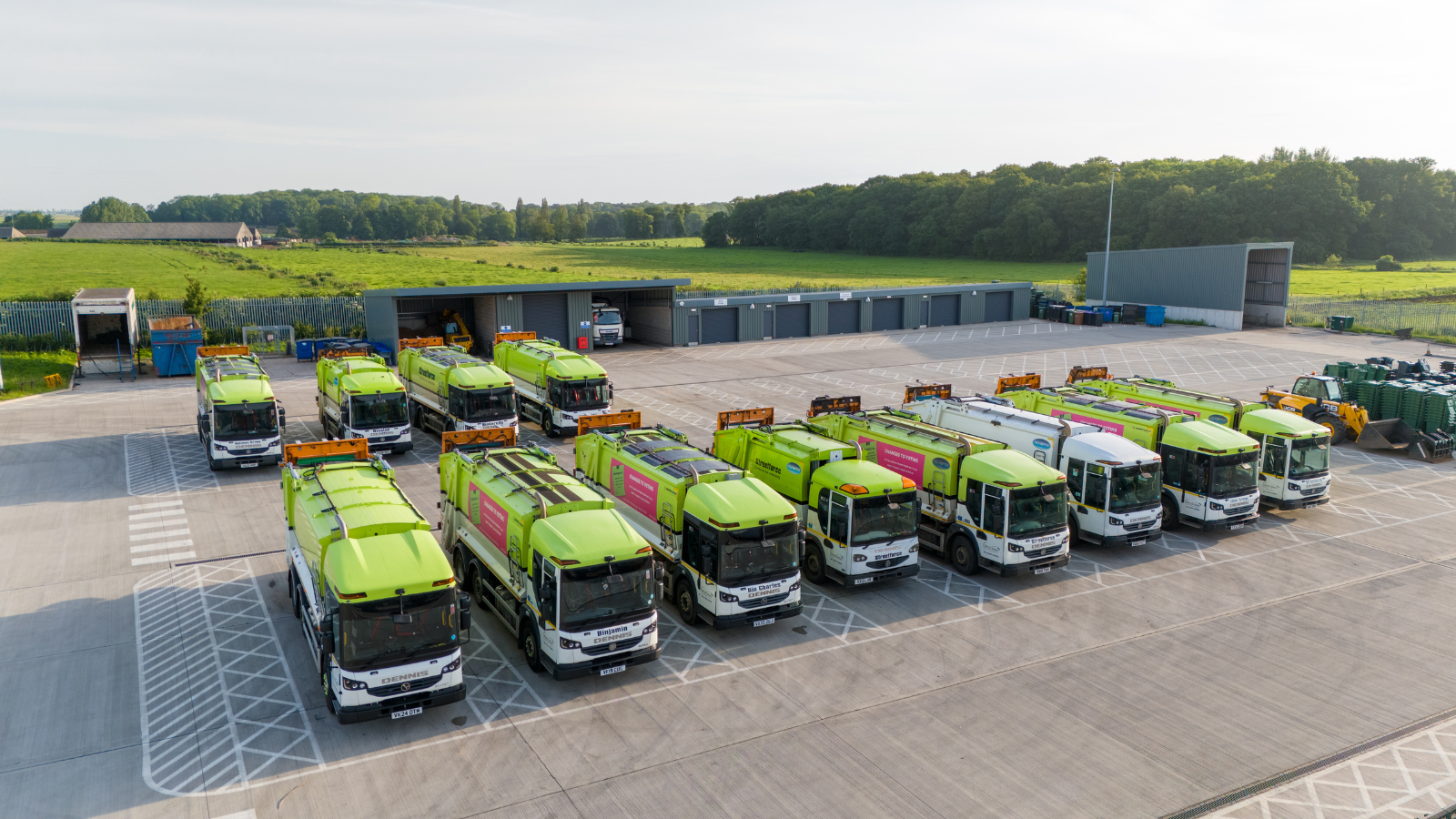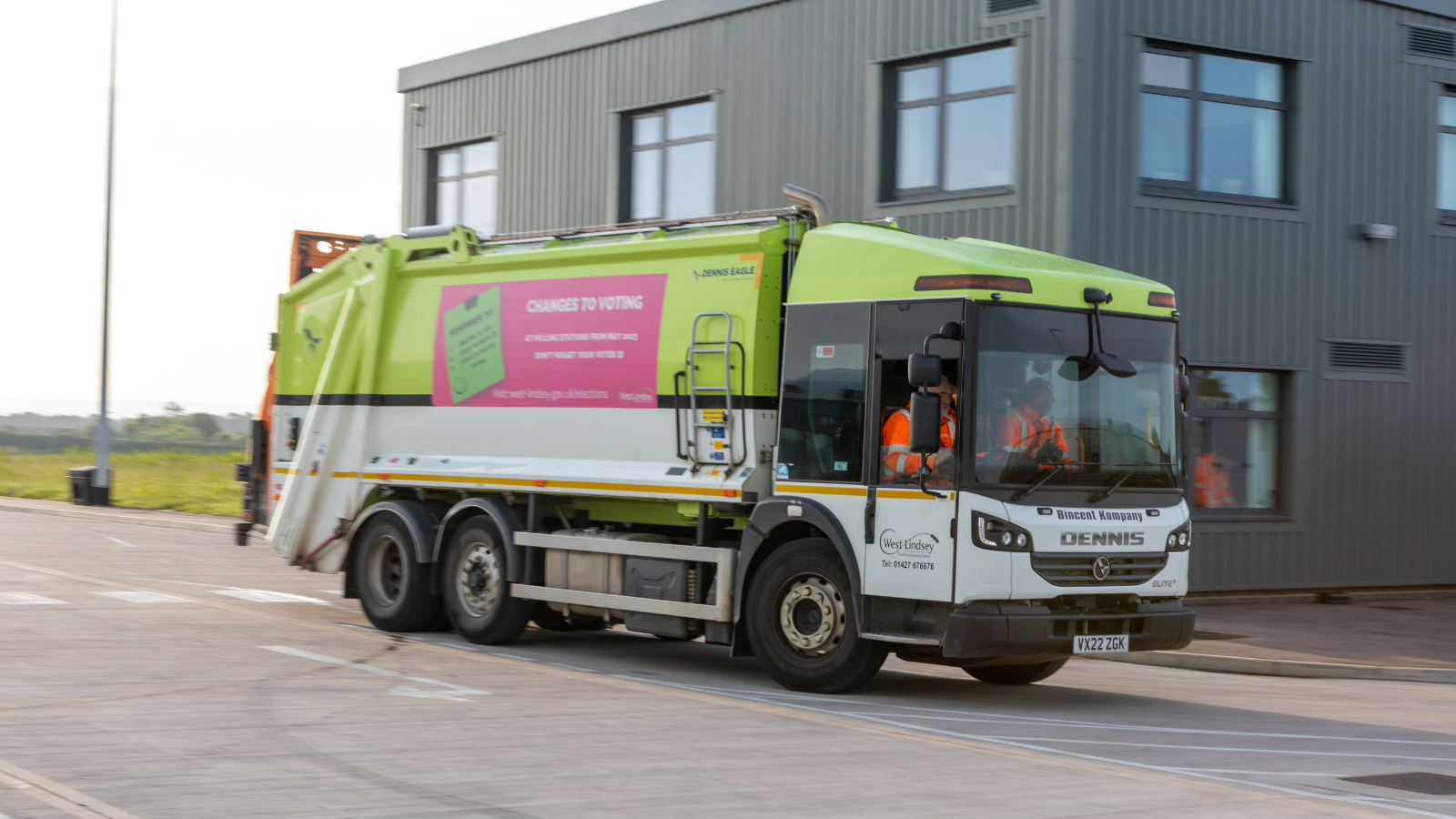Lincolnshire’s West Lindsey District Council renews 12-year relationship with Dennis Eagle

West Lindsey covers 460 square miles of Lincolnshire. Predominantly rural, it encompasses the Lincolnshire Wolds, an official Area of Outstanding Natural Beauty. Its biggest urban area is Gainsborough, a town of 23,000 residents (and the capital of England and Denmark for five weeks in 1013!).
West Lindsey’s residential waste collection operation serves 45,000 properties every week, from town to country. “While Gainsborough’s our main town, a high proportion of our area is extremely rural,” says Rob Gilliot, Operational Services Manager at West Lindsey District Council. “We use the smaller vehicles for the really tight areas around Gainsborough, and the bigger vehicles work across the rural areas.
“Our bin collections range from 700 a day to 2,000 a day, and we’re averaging around 100 miles a day per vehicle due to the rural nature of the operation.”

Dennis Eagle has been supplying RCVs to West Lindsey since 2012 through a procurement process led by Lincolnshire County Council. “It’s a nice easy process for us as a local authority to use,” says Rob. “It’s a bit like being at a restaurant – we get a menu from the council’s purchasing team and our rep from Dennis Eagle of the different vehicle sizes, the types of bin lift, and the bolt-ons such as cameras, safety equipment, etc. We make our selection, and the vehicles are delivered fully branded with all the equipment fitted.”
West Lindsey avoids having to refresh its fleet all at once by making two to four new RCV purchases every couple of years. “This means we never have a lorry over six years old, which is important with the amount of miles they have to cover every week.”